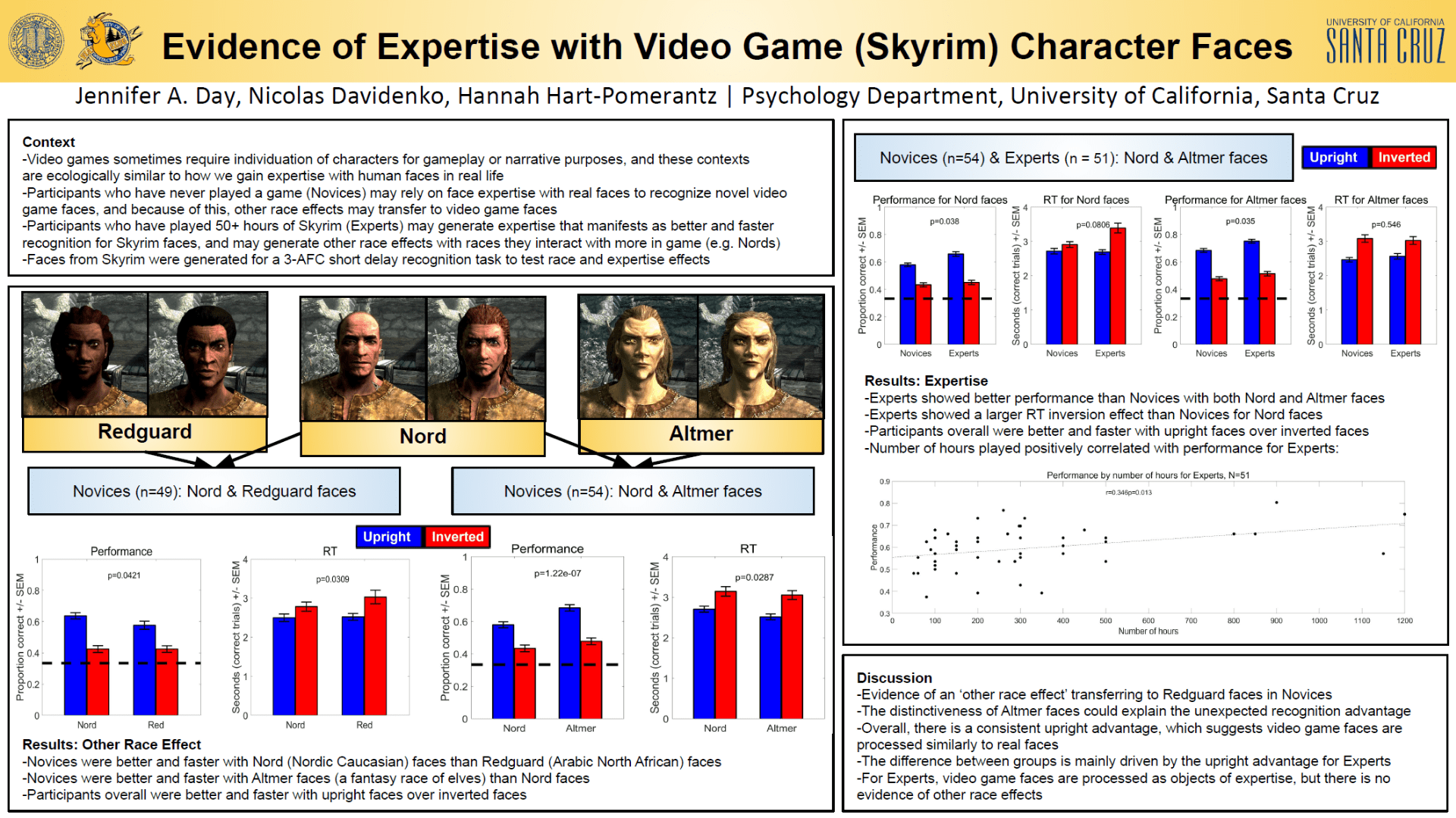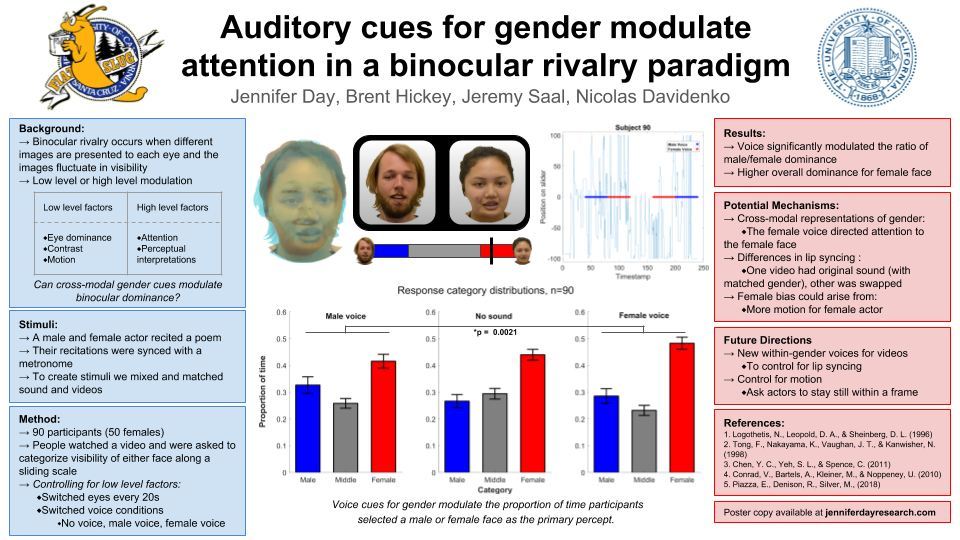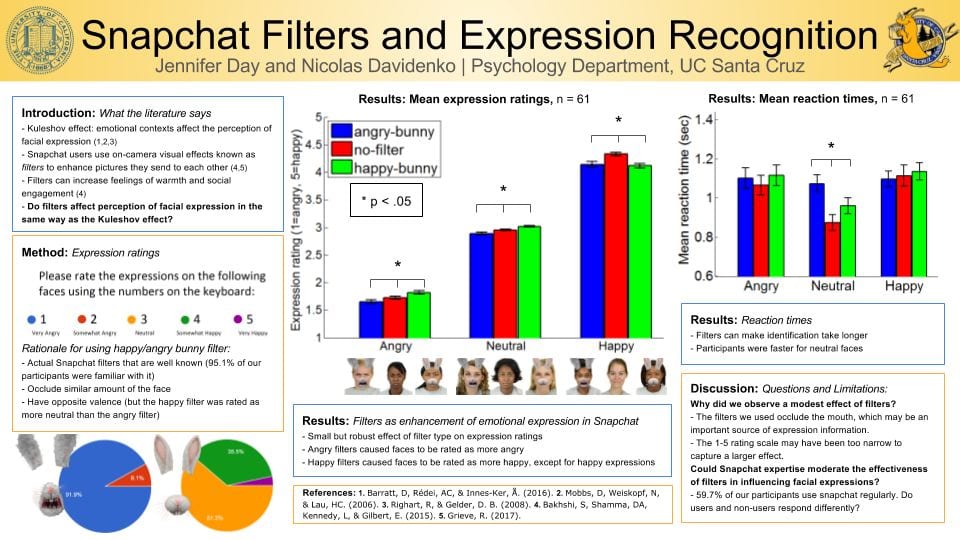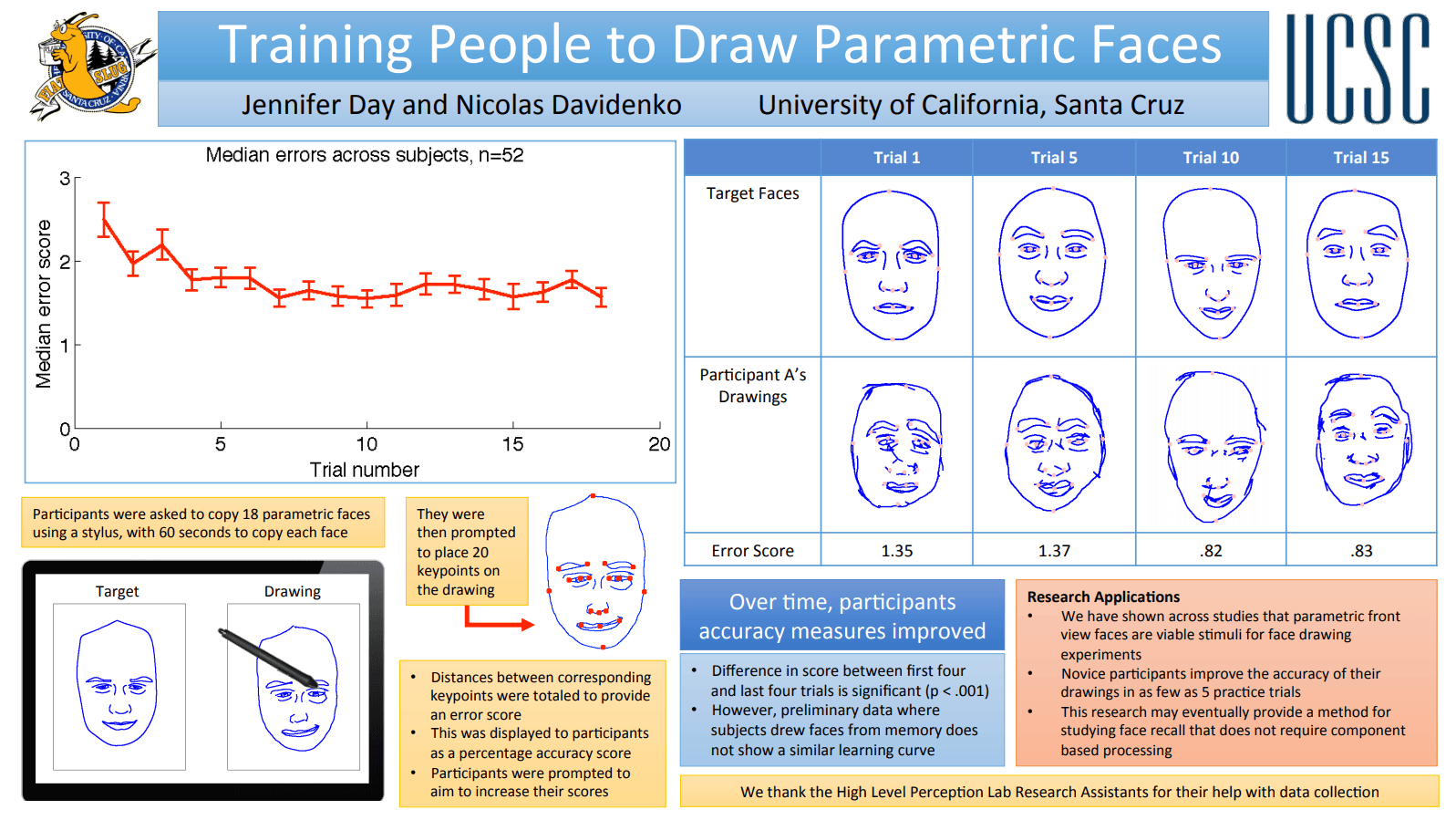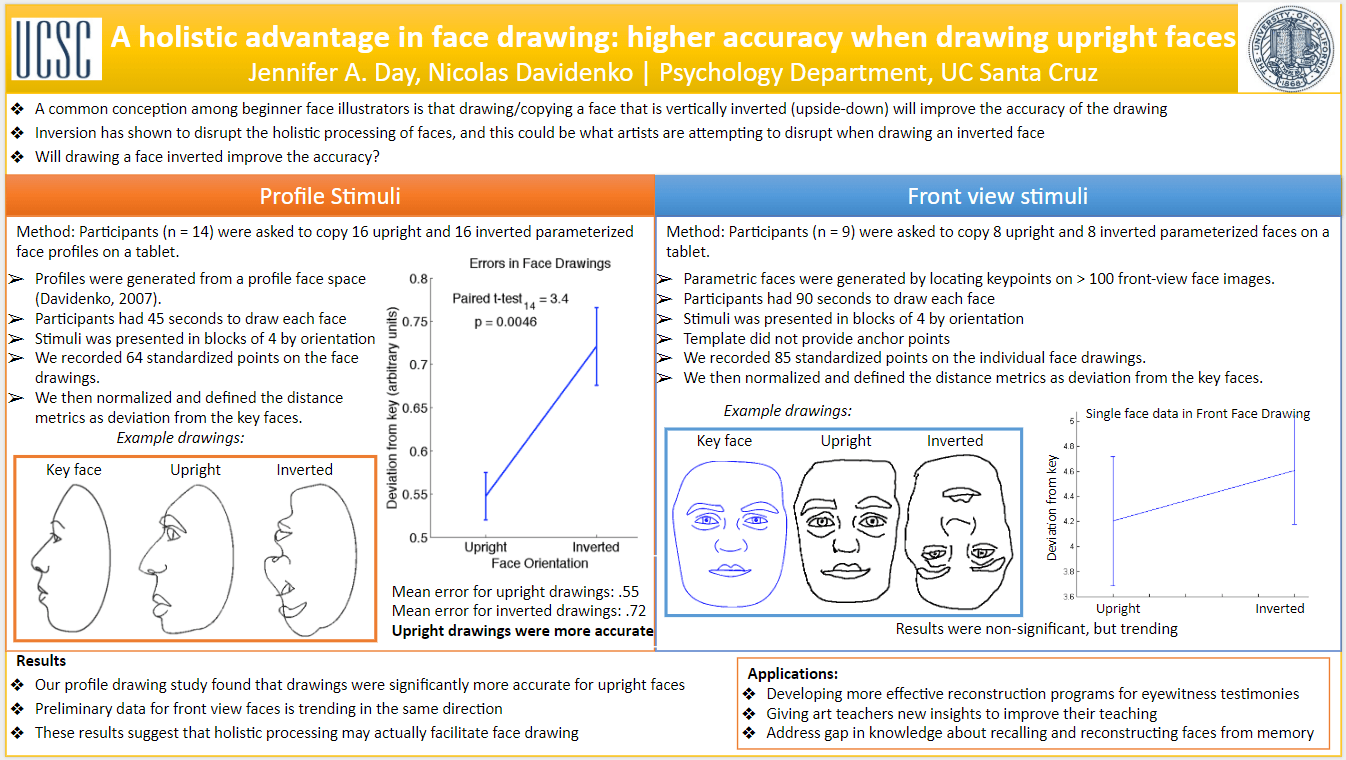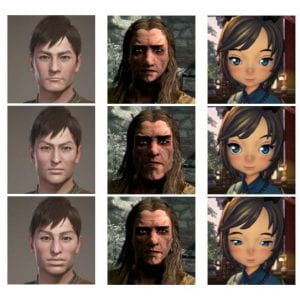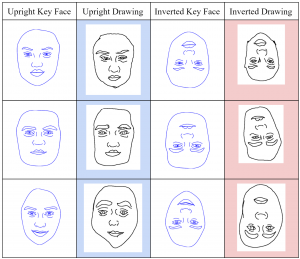Digital representations of faces
How do expertise and realism mediate the boundary between real and digital faces?
This project looks at how players can generate expertise with digital face representations (such as video game character faces) and how the realism or style of a digital face can recruit expertise from real faces. This work is part of my dissertation research and can be viewed online in June 2019.
Drawing inverted and upright faces
Comparing accuracy of faces draw inverted and upright
This project looks at face drawing accuracy with both physical and perceptual measures and compares scores of faces drawn in an inverted position to those that are upright. To view the publication:
Day, J.A. & Davidenko, N. (2017) Physical and perceptual accuracy of upright and inverted face drawings, Visual Cognition.
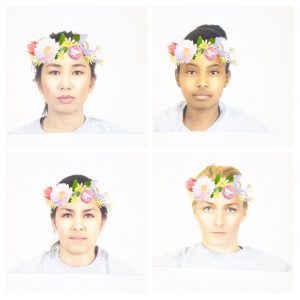 Snapchat and face perception
Snapchat and face perception
Measuring expression and identity recognition in the context of filters
This project looks at face perception within an ephemeral social media platform that allows for heavy virtual face augmentation. We study how augmentations of the face change perception of expression, identity, attractiveness, and race.
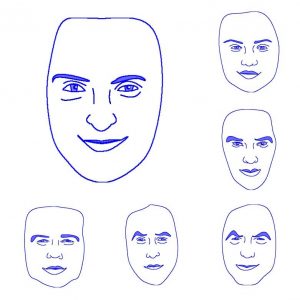 Parametric Face Space
Parametric Face Space
Creating a face space to define parameters of identity, gender, and expression
This project works to replicate Davidenko (2007) with front view faces. This multidimensional space samples from over 1500 hand-coded faces. We are working to publish a detailed write up of the methods and benefits of our face space and make it available to the scientific community.
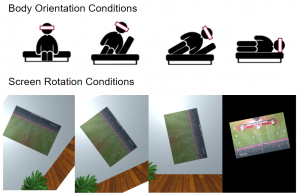 Orientation Preference
Orientation Preference
Determining preferred screen angle as a function of body orientation
This project determines optimal screen viewing preference based on participants comfort reports at different body orientations. We consider this in the context of a VR study where body and screen orientation can be mismatched.
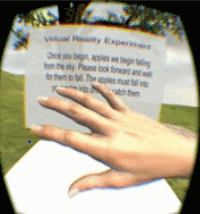 Embodiment in Virtual Spaces
Embodiment in Virtual Spaces
Determining a connection between immersion and embodiment in virtual reality
This project explores how embodying an avatar can increase immersion and interaction within virtual spaces. We consider factors such as the uncanny valley, Proteus effect, levels of movement, gestures, and avatar customization and congruence.
